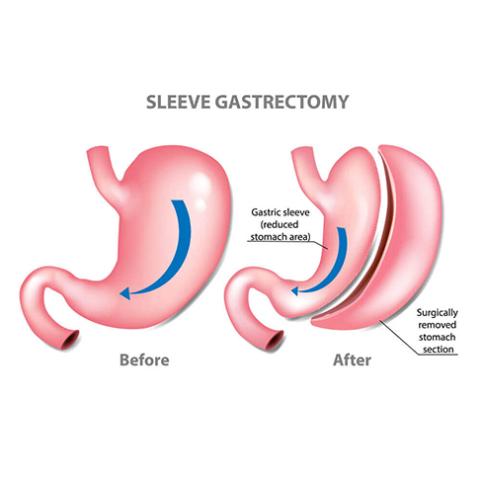Sleeve Gastrectomy (Gastric Sleeve)

Sleeve Gastrectomy (Gastric Sleeve)
Sleeve gastrectomy, also called a vertical sleeve gastrectomy, is a surgical weight-loss procedure. This procedure is typically performed laparoscopically, which involves inserting small instruments through multiple small incisions into the upper abdomen. During sleeve gastrectomy, around 80 percent of the stomach is removed, leaving a tube-shaped stomach about the size and shape of a banana.
Limiting the size of your stomach restricts the amount of food you are able to consume. In addition, the procedure prompts hormonal changes that assist with weight loss. The same hormonal changes also help relieve conditions such as high blood pressure or heart disease that are caused by being overweight. The effect of sleeve gastrectomy surgery is not only to reduce the volume of the stomach but also it has a serious effect on the hunger hormone secreted from the stomach while the stomach is reduced to a tube shape. The desire for food decreases, the brain feels less hungry, therefore sleeve gastrectomy surgery creates not only a mechanical effect, but also a hormonal effect.

